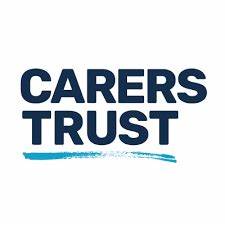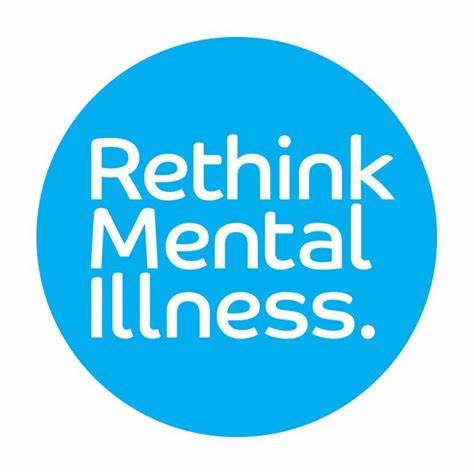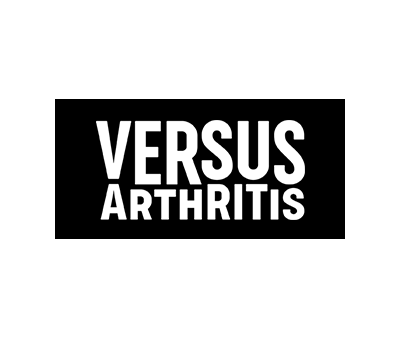Just select the areas you'd like support in by clicking the

Select from below to receive advice.
Book a visit to the care provider or arrange a temporary stay to see if it is suitable.
Consider what type of care provider would be most suitable
Enquire and book a Needs Assessment with the relevant Local Authority regarding your loved ones support and financial needs.
Use the CQC website to find and check reports of care homes
Use the NHS or EAC search engine to find care providers in your area and what services they provide
When to consider a care home
A care home may be the best option if you or someone you know:
- is struggling to live alone – even with help from friends, family or paid carers
- had a needs assessment that suggested a care home is the best choice
- has a complex medical condition – that needs specialist attention during the day and night
Care homes can reduce the stress of looking after your health and care. This may help you focus on other things, like your social life and general wellbeing.
Here is a NHS search engine which will locate services near to you based upon your postcode.
Choosing a care home
If the council is paying for your care home
You should be given a care plan by the council, which lets you know your options. The information in your care plan might also help you decide which care home best meets your needs.
You can choose which care home you prefer, as long as the council agrees it:
- meets your needs
- is not more expensive than another suitable care home
If you're paying for a care home yourself
You might have a lot of options if you're paying for care yourself.
It's important to do some research to make sure it's the right place to meet your needs. The council can also advise you on the best options.
How to find a care home
Your local council's adult social care services can give you more information about care homes in your area.
Find your local adult social care services
Care Choices - Find Care Homes, Information And Guidance
How to decide if a care home is right for you
Things to consider before choosing a care home:
- where it is (location) – for example, do you want to be near your family or local shops?
- how much it costs
- whether they offer the right services or activities you need
- how visiting and leaving the care home works – for example, do you want to be able to go out on your own or with staff assistance?
Signs of a good care home include:
- staff and managers with the right time, skills and experience to do their jobs
- clean buildings, rooms and bathrooms
- a wide range of activities for residents at home and outside
- good quality food choices and options about where to eat meals
- fast and easy access to health professionals, such as GPs and dentists
- the care home makes sure any cultural, religious or lifestyle needs are met
- feedback from residents is asked for and used to improve care
How to research a care home
To get more information about a care home you could:
- phone them
- visit their website
- request a brochure
- visit the care home
- request a temporary stay
There are also organisations that inspect care homes to see how well they are doing. The Care Quality Commission (CQC) regulates all health and adult social care in England.
You might see a CQC inspection rating when you visit a care home or search online. Their 4 ratings are:
- Outstanding
- Good
- Requires improvement
- Inadequate
You could also search for care homes on the CQC website to see their latest inspection reports.
Other ways to get care and support
Many people feel they don't need to move into a care home, or are worried about moving out of their home.
You may want to consider other options, which could be cheaper or help you feel more independent.
Making changes to your home:
- adapting your home – for example, adding stairlifts, hand rails or extra security
- using household gadgets and equipment – to help you cook, clean and get dressed
Hiring a carer or getting more support:
- hiring a care worker – where someone comes to your home to provide help and care
- supported living services – where you live in agreed accommodation, with staff that visit you to provide help and care
Moving to a new home:
- more independent housing options include extra care housing, supported living or retirement villages
If you decide a care home is the best place to meet your health and care needs, you'll need to choose which type of care home is right.
Source: NHS
Care Quality Commission
Inspects and reports on care services, care homes and hospitals.Care.com
The Care.com digital platform provides a simple, comprehensive solution for finding, managing and paying for family care needs; including elderly care, child care, special needs care, pet care and housekeeping.More than one million carers worldwide are already signed up, and you can filter through them by postcode and the specific tasks you need help with, such as bed changing or grocery shopping.
Beacon
Beacon provide free expert advice and affordable representation for families who are struggling to navigate the maze of NHS Continuing Healthcare.Carers UK Animated Video Guides
Carers UK animation series covers a wide variety of topics to help you understand what support and benefits are available to help you look after someone as well as yourself.Click below to play animation
Carers Allowance Universal Credit Personal Independent Payments Disability Living Allowance Carers Assesments Attendance AllowanceSelect from below to receive advice.
Enquire with your local carer service or local authority about how a carer assessment could help you
Think about the support you would like to help your wellbeing and support you as a carer.
If the local council decides that you do have eligible needs, then providing you want them to, they have a legal obligation to meet these needs and must draw up a support plan detailing how these needs will be met.
It may be agreed that the best way to help you as a carer is by providing services directly to you, by providing services to the person you are looking after, or a combination of both.
The local council can provide services themselves, or arrange services through another organisation.
Alternatively, you or the person you are looking after can request direct payments, which are payments which enable you to buy services to meet your eligible needs.
The support plan must include:
- details of the needs identified in the assessment
- which needs meet the eligibility criteria
- which needs the local council is going to meet, and how
- the outcomes that you want to achieve
- information about the personal budget available (the amount of money that the local council has worked out it will cost to arrange the necessary support for you)
- information about direct payments
- information and advice to support you in your role as a carer and address your needs.
Some examples of the kind of help that could be available directly to you as a carer:
- help with transport costs, such as taxi fares or driving lessons
- costs for a car where transport is crucial, such as repairs and insurance
- technology to support you, such as a mobile phone, computer where it is not possible to access computer services elsewhere
- help with housework or gardening
- help to relieve stress, improve health and promote wellbeing such as a gym membership.
Some examples of the kind of help that could be available to the person you are looking after, in order to help you as a carer:
- changes to their home to make it more suitable
- equipment such as a hoist or grab rail
- a care worker to help provide personal care at home
- a temporary stay in residential care/respite care
- meals delivered to their home
- a place at a day centre
- assistance with travel, for example to get to a day centre
- laundry services
- replacement care so you can have a break.
Source: CarersUK
Carers' Trust
The Carers' Trust is the largest provider of comprehensive carers support services in the UK.Carers UK
Carers UK give expert advice, information and support to carers in order to make their life better.Carers UK are available to make sure that no matter how complicated your query or your experience, you don't have to care alone.
They have an expert telephone advice and support service for if you want to talk about caring. And if you're looking for answers, they have online information and support.
Carers UK continually campaign for carers rights, alongside having online support groups and volunteering opportunities.
Carers UK Animated Video Guides
Carers UK animation series covers a wide variety of topics to help you understand what support and benefits are available to help you look after someone as well as yourself.Click below to play animation
Carers Allowance Universal Credit Personal Independent Payments Disability Living Allowance Carers Assesments Attendance AllowanceCreate an emergency plan so you and others are aware what to do in an emergency
Download and read the Bridgit Carer Information Pack
Find out about Carer’s Allowance and other benefits
Register with your GP as a carer, you will have access to health checks and free flu jabs
Speak to your Carer Support Dorset for support available
If you provide assistance to or care for another person then as a carer, there are certain things you should do or you should know.
Here are our top tips for all carers, existing and new.
Complete a Carers Assessment (for you) and a Needs Assessment for the one you care for (If you haven’t done so already). It may help to identify the support you and your family require. This can be completed via your Local Authority or your local carers centre.
Find out more about your local carers centre. They have a wide range of support, advice, classes and activities to help you as a carer.
Every year millions of pounds of carers' benefits go unclaimed in the UK. Use a benefits checker such as Turn2Us to see what benefits support you may be entitled to. There are carer specific benefits available such as as Carers Allowance or Carers Credit.
Look into some of the great carer technology which can make caring easier
Juggling work and care can be tricky, as a carer you have employment rights and more employers are recognising the importance of supporting the people in their workforce with caring responsibilities.
Register yourself as a carer with your GP. You will be entitled to health checks as well as other services.
Carers' Trust
The Carers' Trust is the largest provider of comprehensive carers support services in the UK.Age UK
We aim to provide life-enhancing services and vital support to people in later life. We and our local partners deliver a range of services across the UK.Our local Age UKs run a variety of different services. Not all services take place in every area, but all local Age UKs will be able to help you find what you're looking for.
Bridgit
Bridgit Care understand that being an unpaid carer is one of the most important jobs out there. But it can sometimes feel lonely and like you're unsupported. Which is why we're always here to listen and help. We believe technology should be designed with and for carers and the ones they support.Email: contact@bridgit.care
Carers UK
Carers UK give expert advice, information and support to carers in order to make their life better.Carers UK are available to make sure that no matter how complicated your query or your experience, you don't have to care alone.
They have an expert telephone advice and support service for if you want to talk about caring. And if you're looking for answers, they have online information and support.
Carers UK continually campaign for carers rights, alongside having online support groups and volunteering opportunities.
Veterans Gateway
Veterans’ Gateway – information, advice and support for veterans and their families Here for you 24/7, we are the first point of contact for veterans and their loved ones. We can directly refer you to our verified, expert partners including Combat Stress, SSAFA, Poppy Scotland and more.Carers UK Animated Video Guides
Carers UK animation series covers a wide variety of topics to help you understand what support and benefits are available to help you look after someone as well as yourself.Click below to play animation
Carers Allowance Universal Credit Personal Independent Payments Disability Living Allowance Carers Assesments Attendance AllowanceSelect from below to receive advice.
Select from below to receive advice.
Understanding Direct Payments and Gaining Respect and Recognition as a Carer
🌟 Introduction to Direct Payments
Direct Payments are a way for you, as a carer, to have more control over the funds allocated for the care of the person you support. This system allows you to make decisions about the necessary care and services instead of relying on those provided directly by the local council. It's designed to give you flexibility and to tailor care services to the specific needs of the person you care for.
🔍 Eligibility and Application Process
To start receiving Direct Payments, you need to contact your local council for an assessment of your needs as well as the needs of the person you care for. Here’s what you can do:
-
Contact Your Local Council: Reach out to your local council’s social services department. For example, if you are in Birmingham, you would contact Birmingham City Council’s Adult Social Care at 0121 303 1234 or visit their website.
-
Assessment: You and the person you care for will be assessed to determine your eligibility for direct payments. This assessment will consider the level of care needed and how best to manage these needs.
-
Agreement: If eligible, you'll receive an agreement that outlines the amount of money you will receive and what it should be used for.
📜 Managing Direct Payments
Managing direct payments means you will take on the responsibility of hiring and managing care services. This includes:
- Hiring Staff: Finding, interviewing, and hiring personal assistants or other service providers.
- Budgeting: Managing the budget to ensure all care needs are met within the funds provided.
- Record Keeping: Maintaining records of expenditures and care activities.
📌 Training and Support
Many local councils and organisations offer training on managing direct payments. These resources can help you understand your responsibilities, how to manage the budget, and comply with legal requirements.
💬 Gaining Respect and Recognition
Feeling undervalued by the council can be disheartening. Here are some steps you can take to improve recognition and respect:
-
Join a Support Group: Connect with other carers through local support groups or online communities. This can provide emotional support and practical advice.
-
Communicate with Your Council: Share your experiences and the challenges you face as a carer with your local council. Sometimes, councils may not be fully aware of the impact of their policies and practices.
-
Carers UK Advocacy: Consider reaching out to organisations like Carers UK. They advocate for carers’ rights and can provide guidance on how to bring about changes in local policy. Contact them at 0808 808 7777 or visit their website.
-
Feedback and Consultations: Participate in consultations or feedback sessions organised by your council. This is your chance to express your views and influence future services.
💌 Final Thoughts
As a carer, you play a crucial role in the wellbeing of the person you care for and contribute significantly to your community. While the process of managing direct payments may seem daunting, remember that there are resources and support networks to help you. By actively engaging with your council and community, you can foster better recognition and respect for your hard work.
If you have further questions or need assistance, don't hesitate to contact your local council's social services or a local carer support organisation. Remember, your role is vital, and your voice deserves to be heard.
Sorry, we don't have a video playlist for 💵 Direct Payments
You can try searching YouTube by clicking below:
Search for 💵 Direct Payments videosSelect from below to receive advice.
Trussell Trust
The Trussell Trust support a nationwide network of food banks and provide emergency food and support to people locked in poverty.They support and encourage food banks to provide compassionate, practical support to people in crisis to tackle the root causes that lock people into poverty and build people's resilience so they are less likely to need a food bank in the future.
The Trussell Trust can locate your local food bank and will explain how to gain access to this helpful service.
NHS Active 10
The Active 10 walking app is a great way to help you monitor and gradually increase your brisk walking levels over time.Brisk walking is walking faster than your usual pace to get your heart pumping. Every minute of activity counts, but aim for at least 10 minutes each day.
A daily brisk walk can make you feel better in so many ways. It can boost your energy, clear your head and lift your mood.
It can also help with many health issues, such as lower back pain and high blood pressure,as well as reducing your risk of serious illnesses like heart disease, anxiety, depression, type 2 diabetes and some cancers.
Healthier Families
Change4Life provides parents with the essential support and aids they need in order to make healthier choices for their families.We know that day to day life can make us busier, less active, and more reliant on convenience and fast food than we used to be.
That is why Change4Life helps families with fun suggestions to help families stay healthy, whether by providing easy recipes for busy weeknights, ideas of great sugar swaps, games to get kids moving or help in understanding food labels.
NHS Couch to 5k
The Couch to 5K programme is designed for beginners to gradually build up their running ability so they can eventually run 5km without stopping in 9 weeks. Whether you've never run before or you just want to get more active, Couch to 5K is a free and easy way of getting fitter and healthier.Probably the biggest challenge a new runner faces is not knowing how or where to start. Often when trying to get into exercise, we can overdo it, feel defeated and give up when we're just getting started. Which can be a major barrier to continuing in your fitness journey.
Couch to 5K is different as it starts with a mixture of running and walking to gradually build up your fitness and stamina.
The plan involves 3 runs a week, with a day of rest in between, and a different schedule for each of the 9 weeks.
Trussell FoodBank
National provider of foodbanks with a search tool to find the one closest to you.Hello Fresh
Hello Fresh is a meal kit delivery service. Whether you are cooking for yourself or for a household, Hello Fresh has a plan for you.Hello Fresh delivers step-by-step chef created recipes straight to your door. Ingredients arrive fresh and pre-measured therefore avoiding waste and making cooking easier, healthier and quicker.
Select from below to receive advice.
Save the plan in an accessible location and give copies to those that will need it.
Talk about the plan with the person you care for and any other people that will be involved such as friends and family. Especially those who may have a responsibility within the plan
Think about the important information that needs to be included on a emergency plan and gather together the details
As a carer you need to know that if an emergency happens, replacement care will get sorted out speedily and efficiently.
When you care for someone, life cannot simply be put on hold when the person you are looking after relies on you for vital help and support.
When help is urgently needed, you might contact a family member, friend or neighbour who would be willing to cover in an emergency, but we know that this isn't always possible.
We advise all carers to create an emergency plan – for you and all those you look after. Having a plan in place can help ease your worries if you are not able to care for those you look after at any point in the future.
In order to create an emergency plan that meets your needs, we recommend you consider bringing together these details:
- details of the name, address and contact details of the person you look after
- who you and the person you look after would like to be contacted in an emergency – this might include friends, family or professionals
- details of any medication the person you look after is taking and where it is stored
- details of any ongoing treatment they need
- noting details of any allergies
- details of their GP and pharmacy
- any ongoing treatment they need
- any care and support services they receive
- any continence products needed and who supplies them
- any mobility challenges and mobility aids such as a wheelchair or hoist
- anything behavioural others need to be aware of.
Having this important information in one place could be of immense support and help when needed at a critical time, when time might be limited. Talk about the plan with the person you care for, if possible, and also with those you would like to be named emergency contacts.
It would also be useful to share it with trusted family members or friends and healthcare professionals.
Give people a copy of the plan – or let them know where they can find it and make sure the information is regularly updated.
Source: CarersUK
Carers' Trust
The Carers' Trust is the largest provider of comprehensive carers support services in the UK.Carers UK
Carers UK give expert advice, information and support to carers in order to make their life better.Carers UK are available to make sure that no matter how complicated your query or your experience, you don't have to care alone.
They have an expert telephone advice and support service for if you want to talk about caring. And if you're looking for answers, they have online information and support.
Carers UK continually campaign for carers rights, alongside having online support groups and volunteering opportunities.
Select from below to receive advice.
Falls Assistant
Falls Assistant is a self-management tool designed by the NHS to help prevent falls, keep people steady on their feet and remain as independent as possible.It enables older people, their carers and family members to assess their own falls risk, and then provides tailored advice that will give them a plan to reduce their future risk of falls and fractures.
Select from below to receive advice.
Select from below to receive advice.
NHS 111
If you or a loved one is feeling unwell you can get medical help buy visiting the NHS 111 website, answer the questions regarding your symptoms and receive medical advice.Select from below to receive advice.
Contact
We’re here for families wherever they live in the UK, and whenever they need usCouncil for Disabled Children
An online library of resources that you can access to find out more about disability policy and practice which includes a selection of materials specifically written with parents in mind.My Family Our Needs
We offer information, guidance and advice on all aspects of supporting a child or young person with additional needs from birth right up to the age of 25. Whether you are looking for a primary school or helping your child move into their first independent home, you’ll find practical resources to help you here.'Parent Care Foundation
Parent Carer Foundation provides a central voice for Parents and Carers of children and adults of all ages with SEN / complex learning / medical needs and all kinds of disabilities.SIBS
Sibs exists to support people who grow up with or have grown up with a disabled brother or sister. It is the only UK charity representing the needs of over half a million young siblings and over one and a half million adult siblings.IPSEA
We’re here for families wherever they live in the UK, and whenever they need usAFASIC
Afasic was founded in 1968 as a parent-led organisation to help children and young people with speech and language impairments and their families.Select from below to receive advice.
Select from below to receive advice.
Rethink Mental Illness
Works to help everyone affected by severe mental illness recover a better quality of life. Has a good range of factsheets on all issues related to mental illness.Mind
When you're living with a mental health problem, having access to the right information is vital.Alternatively you may not be the person living with the mental health problem but wish to support someone who is.
Mind can help with this being a charity that supports and works hard to improve conditions for mental health in the UK.
We believe no one should have to face a mental health problem alone. We'll listen, give you support and advice, and fight your corner.
They offer a number of services such as advice and guidance, you can find by clicking the visit button below.
Select from below to receive advice.
HEART UK
HEART UK is dedicated to combating high cholesterol, a significant risk factor for heart disease. They provide support, information, and advocacy for families and health professionals. February is Heart Month, promoting awareness and offering resources to lower cholesterol levels and improve heart health.Heart Research UK
Heart Research UK is dedicated to funding pioneering medical research and supporting community projects aimed at promoting heart health. They have invested millions in research grants and community initiatives, aiming to reduce the impact of heart diseases, which claim a life every 5 minutes in the UKThe Stroke Association
The Stroke Association supports stroke survivors and their families through vital services like stroke coordinators, research projects, and support groups. Donations help provide essential assistance, improving the lives of those affected by stroke.Pumping Marvellous
Pumping Marvellous supports heart failure patients and families through educational resources and community support. Donations help fund their vital work. Get involved through online donations, Facebook, or by post. Join their mission to improve lives affected by heart failure.The British Heart Foundation
The British Heart Foundation provides information, support, and resources to combat heart and circulatory diseases. They fund research, offer CPR training, run charity shops, and organize events to raise funds. Volunteers play a crucial role in their efforts to save lives.Select from below to receive advice.
ERIC
ERIC is The Children's' Bowel and Bladder Charity offer advice, resources and training to parents and carers to improve the lives of all children and young people in the UK facing continence challenges.National Association for Incontinence
At NAFC our key objectives are to destigmatize incontinence, promote preventive measures, motivate individuals to seek treatmentSelect from below to receive advice.
Arthritis Care
Provides high-quality information and support to empower people to take control of their arthritis.Scope
Supports disabled people and their families, especially those affected by cerebral palsy.Disability Grants
Do you have a disability? Or care for disabled child or adult? If so, you can use this website to save time finding disability grants nationally and locally.Falls Assistant
Falls Assistant is a self-management tool designed by the NHS to help prevent falls, keep people steady on their feet and remain as independent as possible.It enables older people, their carers and family members to assess their own falls risk, and then provides tailored advice that will give them a plan to reduce their future risk of falls and fractures.
Better Mobility
Here you will find a list of charities which may be able to help you with the funding of your mobility equipment. There are many charities who specialise in providing funding for children, and while it can be more difficult to find funding for adults, it is available.Disabled Living Foundation
Provides free, impartial advice about all types of disability equipment and mobility products for older and disabled people, their Carers and families. From stairlifts to walk-in-baths, jar openers to tap turners, bath seats to walking sticks, wheelchairs to scooters, hoists to beds, the DLF can help find disabled equipment solutions that enable people to stay active and independent.Disability Rights UK/RADAR
Wide range of information and publications designed to educate and inform disabled people, public sector organisations and the private sector. Operates the National Key Scheme which provides disabled people with independent access to locked public toilets around the country.Disability Law Service
The Disability Law Service provides free legal advice, information and representation to disabled people and their families or carers.ABLEize
Directory of disability, mobility and health-related websites.Living Made Easy
Unpaid carers are the hidden army enabling thousands of older and disabled people to live fulfilling lives. More than half of people using our information and advice are looking on behalf of someone and when they find that useful thing they always say "I wish I'd known that sooner".Select from below to receive advice.
Samaritans
Whatever you're going through, a Samaritan will face it with you. We're here 24 hours a day, 365 days a year.If you are having a difficult time or are worried about someone else we can help you so please feel free to get in touch.
Alzheimers Society
Alzheimer's Society is the UK's leading dementia charity who support people living with dementia.Dementia is the UK's biggest killer. Someone develops it every three minutes and there's currently no cure. Alzheimer's Society are campaigning for change and funding research to find a cure.
They provide support, information and advice to anyone who may need it.
Dementia UK
Provides support, information and advice about living with dementia. It offers a helpline is for anyone with a question or concern about dementia.Mind
When you're living with a mental health problem, having access to the right information is vital.Alternatively you may not be the person living with the mental health problem but wish to support someone who is.
Mind can help with this being a charity that supports and works hard to improve conditions for mental health in the UK.
We believe no one should have to face a mental health problem alone. We'll listen, give you support and advice, and fight your corner.
They offer a number of services such as advice and guidance, you can find by clicking the visit button below.
Next Steps
This website helps you to find the right support while waiting a memory assessment appointment and diagnosis.Together In Dementia Everyday (TIDE)
This is a UK wide involvement network of carers, former carers and health and care professionals who are working together to build a better future for carers of people living with dementia.Select from below to receive advice.
Rethink Mental Illness
Works to help everyone affected by severe mental illness recover a better quality of life. Has a good range of factsheets on all issues related to mental illness.Hearing Voices
A small national charity whose aims are to: Raise awareness of the diversity of voices, visions and similar experiences and challenge negative stereotypes, stigma and discriminationMind
When you're living with a mental health problem, having access to the right information is vital.Alternatively you may not be the person living with the mental health problem but wish to support someone who is.
Mind can help with this being a charity that supports and works hard to improve conditions for mental health in the UK.
We believe no one should have to face a mental health problem alone. We'll listen, give you support and advice, and fight your corner.
They offer a number of services such as advice and guidance, you can find by clicking the visit button below.
Select from below to receive advice.
Rethink Mental Illness
Works to help everyone affected by severe mental illness recover a better quality of life. Has a good range of factsheets on all issues related to mental illness.Samaritans
Whatever you're going through, a Samaritan will face it with you. We're here 24 hours a day, 365 days a year.If you are having a difficult time or are worried about someone else we can help you so please feel free to get in touch.
Mind
When you're living with a mental health problem, having access to the right information is vital.Alternatively you may not be the person living with the mental health problem but wish to support someone who is.
Mind can help with this being a charity that supports and works hard to improve conditions for mental health in the UK.
We believe no one should have to face a mental health problem alone. We'll listen, give you support and advice, and fight your corner.
They offer a number of services such as advice and guidance, you can find by clicking the visit button below.
Select from below to receive advice.
Age UK
We aim to provide life-enhancing services and vital support to people in later life. We and our local partners deliver a range of services across the UK.Our local Age UKs run a variety of different services. Not all services take place in every area, but all local Age UKs will be able to help you find what you're looking for.
Arthritis Care
Provides high-quality information and support to empower people to take control of their arthritis.NHS Healthy Ageing
The advice in this booklet will help improve the health and general fitness of people of any age, but it is written to be particularly relevant for people who are about 70 years or older.People of this age, and sometimes younger, begin a ‘slowing-down' process related to the effects of ageing on their body. We cannot stop the process of ageing, but the advice given here will help to keep you fit and independent.
British Association for Music Therapy (BAMT)
The British Association for Music Therapy (BAMT) is a charity committed to promoting and raising awareness of Music Therapy, advocating for equal access to Music Therapy for all, and providing information to the general public.Use their Find A Therapist tool to browse through professional members of BAMT and find a music therapist near you.
Action on Hearing Loss (RNID)
Largest charity working to chance the world for the UK's 9 million deaf and hard of hearing people. Information resource about deafness and hearing loss.Select from below to receive advice.
Set yourself weight loss goals
Start making simple changes and swaps to your meals and eating habits
Use a weight management app or plan to help support you, such as the NHS 12 week weight loss plan
If you're overweight, losing weight has many health benefits. Making small, simple changes to what and how much you are eating and drinking can really help you lose the pounds.
Gaining weight is often a gradual process – it happens over the years as a result of modern-day life and the odd unhealthy habit.
Extra weight causes fat to build up around vital organs, making it harder for the body to fight against diseases like cancer, heart disease and now COVID-19.
If you are overweight or living with obesity, lowering your weight can help reduce your risk of developing serious diseases.
Download the free NHS Weight Loss Plan
Download the free NHS Weight Loss Plan to help you start healthier eating habits, be more active, and start losing weight.
The plan is broken down into 12 weeks so you can:
- set weight loss goals
- use the BMI calculator to customise your plan
- plan your meals
- make healthier food choices
- get more active and burn more calories
- record your activity and progress
How to eat healthier meals
It can be tricky to know what to do with your meals if you're trying to lose weight. Here are some quick tips to help.
Veg: go for 2 or more
Aiming for 2 or more portions of veg in a main meal means half your plate.
Protein: prize it!
Always include some protein – like beans, pulses, fish, eggs, meat or other types. It helps you stay full.
Carbs: stick to wholegrain
Carbs like potatoes, bread, rice or pasta should make up no more than a third of your meal.
Fish: try twice a week
If you eat fish, try to have 2 portions a week. At least 1 portion should be oily fish like sardines, salmon or mackerel.
Dairy: keep it light and low
Pick lower-fat and lower-sugar options for milk, cheese and yoghurts.
Oils: choose unsaturated
Go for olive, sunflower and rapeseed oil, which have unsaturated fats.
Spreads: be sensible
Choose lower-fat spreads and only eat it in small amounts.
Water: stay hydrated
Drink 6 to 8 cups of fluid a day. Water, tea, coffee, soup... They all count!
Source: NHS Better Health
NHS Active 10
The Active 10 walking app is a great way to help you monitor and gradually increase your brisk walking levels over time.Brisk walking is walking faster than your usual pace to get your heart pumping. Every minute of activity counts, but aim for at least 10 minutes each day.
A daily brisk walk can make you feel better in so many ways. It can boost your energy, clear your head and lift your mood.
It can also help with many health issues, such as lower back pain and high blood pressure,as well as reducing your risk of serious illnesses like heart disease, anxiety, depression, type 2 diabetes and some cancers.
Healthier Families
Change4Life provides parents with the essential support and aids they need in order to make healthier choices for their families.We know that day to day life can make us busier, less active, and more reliant on convenience and fast food than we used to be.
That is why Change4Life helps families with fun suggestions to help families stay healthy, whether by providing easy recipes for busy weeknights, ideas of great sugar swaps, games to get kids moving or help in understanding food labels.
NHS Couch to 5k
The Couch to 5K programme is designed for beginners to gradually build up their running ability so they can eventually run 5km without stopping in 9 weeks. Whether you've never run before or you just want to get more active, Couch to 5K is a free and easy way of getting fitter and healthier.Probably the biggest challenge a new runner faces is not knowing how or where to start. Often when trying to get into exercise, we can overdo it, feel defeated and give up when we're just getting started. Which can be a major barrier to continuing in your fitness journey.
Couch to 5K is different as it starts with a mixture of running and walking to gradually build up your fitness and stamina.
The plan involves 3 runs a week, with a day of rest in between, and a different schedule for each of the 9 weeks.
Trussell FoodBank
National provider of foodbanks with a search tool to find the one closest to you.Select from below to receive advice.
NHS Active 10
The Active 10 walking app is a great way to help you monitor and gradually increase your brisk walking levels over time.Brisk walking is walking faster than your usual pace to get your heart pumping. Every minute of activity counts, but aim for at least 10 minutes each day.
A daily brisk walk can make you feel better in so many ways. It can boost your energy, clear your head and lift your mood.
It can also help with many health issues, such as lower back pain and high blood pressure,as well as reducing your risk of serious illnesses like heart disease, anxiety, depression, type 2 diabetes and some cancers.
NHS Couch to 5k
The Couch to 5K programme is designed for beginners to gradually build up their running ability so they can eventually run 5km without stopping in 9 weeks. Whether you've never run before or you just want to get more active, Couch to 5K is a free and easy way of getting fitter and healthier.Probably the biggest challenge a new runner faces is not knowing how or where to start. Often when trying to get into exercise, we can overdo it, feel defeated and give up when we're just getting started. Which can be a major barrier to continuing in your fitness journey.
Couch to 5K is different as it starts with a mixture of running and walking to gradually build up your fitness and stamina.
The plan involves 3 runs a week, with a day of rest in between, and a different schedule for each of the 9 weeks.
Select from below to receive advice.
Rethink Mental Illness
Works to help everyone affected by severe mental illness recover a better quality of life. Has a good range of factsheets on all issues related to mental illness.Hearing Voices
A small national charity whose aims are to: Raise awareness of the diversity of voices, visions and similar experiences and challenge negative stereotypes, stigma and discriminationThe Sleep Charity
The Sleep Charity provide advice and support to empower the nation to sleep better as it is estimated that 40% of the population suffer with sleep issues and many do not get the support that they need.The Sleep Charity aim to improve sleep support and access to high quality information, raise awareness of the value of a good night's sleep and promote understanding around the complexities of sleep.
Samaritans
Whatever you're going through, a Samaritan will face it with you. We're here 24 hours a day, 365 days a year.If you are having a difficult time or are worried about someone else we can help you so please feel free to get in touch.
Mind
When you're living with a mental health problem, having access to the right information is vital.Alternatively you may not be the person living with the mental health problem but wish to support someone who is.
Mind can help with this being a charity that supports and works hard to improve conditions for mental health in the UK.
We believe no one should have to face a mental health problem alone. We'll listen, give you support and advice, and fight your corner.
They offer a number of services such as advice and guidance, you can find by clicking the visit button below.
Select from below to receive advice.
Do-It
Do-it is the UK's national volunteering database, which lists volunteering opportunities from thousands of charities and social action groups in the UK, from the largest household names through to small informal groups.These opportunities have come together because groups and organisations want to change something in their local area.
You can find the right volunteering opportunity for you using Do-It.
ACAS
Acas, the Advisory, Conciliation and Arbitration Service, gives employees and employers free, impartial advice on workplace rights, rules and best practice.Acas are an independent public body who work every year to improve workplace relationships by providing free and impartial advice to employers, employees and their representatives on:
employment rights,
best practice and policies,
resolving workplace conflict
Carers UK Animated Video Guides
Carers UK animation series covers a wide variety of topics to help you understand what support and benefits are available to help you look after someone as well as yourself.Click below to play animation
Carers Allowance Universal Credit Personal Independent Payments Disability Living Allowance Carers Assesments Attendance AllowanceSelect from below to receive advice.
Contact your local jobcentre plus for advice, support, training and vacancies. contact your previous employers to reconnect and see if they have any openings.
Explore work experience or volunteering experience opportunities before applying for a new job this week.
Spend time to think about what job you would like depending upon your skills, interests and availability.
The thought of getting back into work can feel like a big step. A good start is to think about what job you might want by recognising your skills and interests, and finding out what support might be available to help you take this step. If you're not sure what you would like to do and where to begin, you could start by listing the skills and interests you have.
Think about the skills you have gained from:
-any paid work that you have done
-any volunteering work you've undertaken
-your role as a carer
Some examples of possible skills you might have gained from your role as a carer:
-prioritising and organising
-time management
-managing a budget
-managing a schedule
-negotiating with professionals
-learning new skills quickly and efficiently (ie if you needed to learn how to move and handle someone, use certain equipment or administer medication)
Consider your interests:
- what you enjoy doing
- how you would like to use your skills
- things you miss doing that you once did, eg from previous work or volunteering
Source: Carers UK
Decide what subject you would like to learn about and see what courses are available near to you, via your local council, college, adult learning centre or university.
Search for careers and courses using the national careers service website this week.

The prospect of a career change, particularly in an economy riddled with uncertainty, can be daunting, and switching jobs is never a decision that should be taken lightly. However, despite the temporary disruption and nerve-wracking first few weeks, in the long-term, it could be the most rewarding thing you do.
Before you make such a big decision, you must weigh up the pros and cons, think realistically about the careers you have the skills and experience to do and consider when the right time to make the move might be.
There are lots of different reasons why people seek a career change. You might want more money, less stress or more flexible hours, or perhaps you’ve always dreamed of running your own business or turning a hobby into a career. It might feel uncomfortable and uncertain, but taking the time to think about what you really want will save you time, effort and heartache in the long run. When it comes to a career change, the more research you do, the better position you’ll be in to make the right decision. However, it’s important not to get trapped in ‘analysis paralysis’ and letting the weeks, months and years pass you by.
Taking small actions on a daily basis is a great way to get the ball rolling and start narrowing down your options. For example, emailing a contact who works in an industry you’re interested in or finding out about online courses you could take to give you the necessary skills to make the leap are steps in the right direction. Speaking to career advisers at the National Careers Service, talking to professional coaches and mentors and even getting some work experience will help you cross off the possibilities and really start to focus your job search.
Source: The Guardian
Source: Unsplash
Do-It
Do-it is the UK's national volunteering database, which lists volunteering opportunities from thousands of charities and social action groups in the UK, from the largest household names through to small informal groups.These opportunities have come together because groups and organisations want to change something in their local area.
You can find the right volunteering opportunity for you using Do-It.
Royal Voluntary Service
The Royal Voluntary Service is a charity which supports people, communities and the NHS in every part of Great Britain.The Royal Voluntary Service inspires and enables people to provide voluntary services. Through volunteering and fundraising they provide one-to-one, group and online services and opportunities that improve health and wellbeing, resilience, confidence and connections.
Carers UK Animated Video Guides
Carers UK animation series covers a wide variety of topics to help you understand what support and benefits are available to help you look after someone as well as yourself.Click below to play animation
Carers Allowance Universal Credit Personal Independent Payments Disability Living Allowance Carers Assesments Attendance AllowanceSelect from below to receive advice.
ACAS
Acas, the Advisory, Conciliation and Arbitration Service, gives employees and employers free, impartial advice on workplace rights, rules and best practice.Acas are an independent public body who work every year to improve workplace relationships by providing free and impartial advice to employers, employees and their representatives on:
employment rights,
best practice and policies,
resolving workplace conflict
Carers UK Animated Video Guides
Carers UK animation series covers a wide variety of topics to help you understand what support and benefits are available to help you look after someone as well as yourself.Click below to play animation
Carers Allowance Universal Credit Personal Independent Payments Disability Living Allowance Carers Assesments Attendance AllowanceSelect from below to receive advice.
Veterans Gateway
Veterans’ Gateway – information, advice and support for veterans and their families Here for you 24/7, we are the first point of contact for veterans and their loved ones. We can directly refer you to our verified, expert partners including Combat Stress, SSAFA, Poppy Scotland and more.Discount for Carers
Discounts for Carers is a dedicated service that connects those who work in the care sector to money-saving discounts with the biggest brands. Regardless of whether you are a carer for a friend, a family member, or if you work in the care sector professionally.Discounts for Carers have a wide variety of discounts and exclusive offers available, from hundreds of brands. It is free to join and you can save money at the places you love with vouchers, discounts and cashback.
Action Fraud
Action Fraud is the UK's national reporting centre for fraud and cybercrime in England, Wales and Northern Ireland.Action Fraud is run by the City of London Police working alongside the National Fraud Intelligence Bureau (NFIB). They provide a central point of contact for information about fraud and financially motivated internet crime. They want to help people who have been scammed, ripped off or conned everyday.
Turn2us
Turn2us is a national charity that provides practical help to people who are struggling financially. They provide information, support and tools to help people who are in need.Turn2us has a benefits calculator to show you what benefits you may be entitled to and a grants search which identifies any additional grants you may be eligible for.
Money Helper
Free guidance on everyday money matters, family and care, budgeting, pensions and lots more.Unbiased Financial Advisors
Unbiased is a financial advisers company that can find local financial advisers to help you with your financial needs.They have connections with over 27,000 qualified financial advisers, mortgage brokers and accountants meaning they can put you in touch with someone local or close to you within the UK.
Citizens Advice Bureau
Citizens Advice provide people with free good quality, informative advice so they can have the knowledge and confidence to move forward in their situation. They believe that no one should have to face their problems alone, whoever you are and whatever your problem.No one else sees so many people with so many different kinds of problems, and that gives Citizens Advice a unique insight into the challenges people are facing today.
Step Change
If you need free advice on problem debt, you can call StepChange. Their team of debt experts can help you find the solutions you need.Beacon
Beacon provide free expert advice and affordable representation for families who are struggling to navigate the maze of NHS Continuing Healthcare.Carers UK Animated Video Guides
Carers UK animation series covers a wide variety of topics to help you understand what support and benefits are available to help you look after someone as well as yourself.Click below to play animation
Carers Allowance Universal Credit Personal Independent Payments Disability Living Allowance Carers Assesments Attendance AllowanceSelect from below to receive advice.
Turn2us
Turn2us is a national charity that provides practical help to people who are struggling financially. They provide information, support and tools to help people who are in need.Turn2us has a benefits calculator to show you what benefits you may be entitled to and a grants search which identifies any additional grants you may be eligible for.
Unbiased Financial Advisors
Unbiased is a financial advisers company that can find local financial advisers to help you with your financial needs.They have connections with over 27,000 qualified financial advisers, mortgage brokers and accountants meaning they can put you in touch with someone local or close to you within the UK.
Carers UK Animated Video Guides
Carers UK animation series covers a wide variety of topics to help you understand what support and benefits are available to help you look after someone as well as yourself.Click below to play animation
Carers Allowance Universal Credit Personal Independent Payments Disability Living Allowance Carers Assesments Attendance AllowanceSelect from below to receive advice.
Check if your local carers centre/service has a Carers Card Scheme you can join
Register for the websites discountsforcarers.com and Carersmart.org for cashback and discount deals.
Speak to utility companies such as energy companies, water companies or TV License for any discounts or schemes they may provide which you may be eligible for.
Having a caring role can sometimes take a toll on your finances. There are some organisations that have put together schemes to help carers get deals and discounts on everyday items and more, e.g offers on holidays.
These can help you to save penny's making your money go further which can be crucial when every penny matters!
Discounts for Carers offers carers, paid or unpaid, money saving deals and vouchers for a wide range of shops, holidays and utilities.
- Latest deals emailed to your inbox
- Free to use and no fees ever
- Over 300 big name brands
Carer Smart is a scheme put together by Carers Trust to offer carers discounts such as cash back, reductions, discounts and benefits on insurance, travel and high street shops and much more. Joining is easy and free, once you’re a member, you can benefit from a wide range of offers including:
- Cash back on shopping from numerous high street retailers.
- Best rates from energy providers.
- Reductions on insurance renewals.
- Discounts on holidays and travel arrangements.
- Reduced price lifestyle activities.
- Free legal advice services.
Source: Carers First
Health Service Discounts
Whether you’re giving your all on the frontline or in the back office, if you work in healthcare you can save with our huge range of NHS & healthcare discounts, money-saving deals and vouchers, including travel and holiday deals, top fashion discounts, money off electricals and homeware, through to deals on mobile phones, utilities, and an exclusive cashback card.Discount for Carers
Discounts for Carers is a dedicated service that connects those who work in the care sector to money-saving discounts with the biggest brands. Regardless of whether you are a carer for a friend, a family member, or if you work in the care sector professionally.Discounts for Carers have a wide variety of discounts and exclusive offers available, from hundreds of brands. It is free to join and you can save money at the places you love with vouchers, discounts and cashback.
Carer Smart
Joining is simple and free. And once you’re a member, you’ll be able to benefit from a wide range of offers, including: Cash back on shopping from numerous high street retailers Best rates from energy suppliers Reductions on insurance renewals Discounts on holidays and travel arrangements Reduced price lifestyle activities Free legal advice servicesCarers Forward Card
Carers Forward provide a card to support family carers. It costs £15 per year, or £25 for 2 years. Prove you’re a Carer when you are out and about Access our exclusive Carer Friendly Community and online support. Provides In Case of Emergency (ICE) contact details . Access to online and high street discounts.Select from below to receive advice.
Money Saving Expert
Money saving expert provide a lots of tips on a variety of money saving areas, as well as how to reduce the costs to heat your home.Warm Spaces
Find warmth this winter. We're building an online directory of ‘warm banks’. Spaces to find warmth, community & help.Unbiased Financial Advisors
Unbiased is a financial advisers company that can find local financial advisers to help you with your financial needs.They have connections with over 27,000 qualified financial advisers, mortgage brokers and accountants meaning they can put you in touch with someone local or close to you within the UK.
Trussell Trust
The Trussell Trust support a nationwide network of food banks and provide emergency food and support to people locked in poverty.They support and encourage food banks to provide compassionate, practical support to people in crisis to tackle the root causes that lock people into poverty and build people's resilience so they are less likely to need a food bank in the future.
The Trussell Trust can locate your local food bank and will explain how to gain access to this helpful service.
Carers UK Animated Video Guides
Carers UK animation series covers a wide variety of topics to help you understand what support and benefits are available to help you look after someone as well as yourself.Click below to play animation
Carers Allowance Universal Credit Personal Independent Payments Disability Living Allowance Carers Assesments Attendance AllowanceSorry, we don't have a video playlist for ✨ Cost Of Living
You can try searching YouTube by clicking below:
Search for ✨ Cost Of Living videosSelect from below to receive advice.
Action Fraud
Action Fraud is the UK's national reporting centre for fraud and cybercrime in England, Wales and Northern Ireland.Action Fraud is run by the City of London Police working alongside the National Fraud Intelligence Bureau (NFIB). They provide a central point of contact for information about fraud and financially motivated internet crime. They want to help people who have been scammed, ripped off or conned everyday.
Discount for Carers
Discounts for Carers is a dedicated service that connects those who work in the care sector to money-saving discounts with the biggest brands. Regardless of whether you are a carer for a friend, a family member, or if you work in the care sector professionally.Discounts for Carers have a wide variety of discounts and exclusive offers available, from hundreds of brands. It is free to join and you can save money at the places you love with vouchers, discounts and cashback.
Turn2us
Turn2us is a national charity that provides practical help to people who are struggling financially. They provide information, support and tools to help people who are in need.Turn2us has a benefits calculator to show you what benefits you may be entitled to and a grants search which identifies any additional grants you may be eligible for.
Money Helper
Free guidance on everyday money matters, family and care, budgeting, pensions and lots more.Unbiased Financial Advisors
Unbiased is a financial advisers company that can find local financial advisers to help you with your financial needs.They have connections with over 27,000 qualified financial advisers, mortgage brokers and accountants meaning they can put you in touch with someone local or close to you within the UK.
Citizens Advice Bureau
Citizens Advice provide people with free good quality, informative advice so they can have the knowledge and confidence to move forward in their situation. They believe that no one should have to face their problems alone, whoever you are and whatever your problem.No one else sees so many people with so many different kinds of problems, and that gives Citizens Advice a unique insight into the challenges people are facing today.
Step Change
If you need free advice on problem debt, you can call StepChange. Their team of debt experts can help you find the solutions you need.Carers UK Animated Video Guides
Carers UK animation series covers a wide variety of topics to help you understand what support and benefits are available to help you look after someone as well as yourself.Click below to play animation
Carers Allowance Universal Credit Personal Independent Payments Disability Living Allowance Carers Assesments Attendance AllowanceSelect from below to receive advice.
UCAS Additional Funding
When you search for courses, you can see if any bursaries, scholarships, or awards are available from the course provider. The amounts vary across different courses and locations – check the course listings and contact them for more info.Some course providers offer their own bursaries to help students progress in their studies. These may be offered to students who are involved in particular projects, in certain subject areas or specialisms. Some may receive funding based on their academic attainment, while other students may be eligible for support because of their personal circumstances. To see what bursaries are available at your university, college, or conservatoire, contact their student services office or visit their website.
Select from below to receive advice.
UK Safer Internet Centre
A place where you can find online safety tips, advice and resources to help children and young people stay safe online.Men's Sheds
Men's Sheds (or Sheds) are similar to garden sheds – a place to pursue practical interests at leisure, to practice skills and enjoy making and mending. The difference is that garden sheds and their activities are often solitary in nature while Men's Sheds are the opposite. They're about social connections and friendship building, sharing skills and knowledge, and of course a lot of laughter.Sheds are whatever the members (or Shedders as we call them) want them to be. Although labelled sheds, they often aren't sheds at all. They can be empty offices, portable cabin's, warehouses, garages, and in at least one case, a disused mortuary. Some Sheds are purpose built workshops, but they rarely start out that way. Many don't have premises at all in the beginning and instead form a group that meets regularly for the social connection, company and camaraderie until they can find somewhere to kit out with tools. Many Sheds get involved in community projects too – restoring village features, helping maintain parks and green spaces, and building things for schools, libraries and individuals in need.
Select from below to receive advice.
Samaritans
Whatever you're going through, a Samaritan will face it with you. We're here 24 hours a day, 365 days a year.If you are having a difficult time or are worried about someone else we can help you so please feel free to get in touch.
Mind
When you're living with a mental health problem, having access to the right information is vital.Alternatively you may not be the person living with the mental health problem but wish to support someone who is.
Mind can help with this being a charity that supports and works hard to improve conditions for mental health in the UK.
We believe no one should have to face a mental health problem alone. We'll listen, give you support and advice, and fight your corner.
They offer a number of services such as advice and guidance, you can find by clicking the visit button below.
British Association for Music Therapy (BAMT)
The British Association for Music Therapy (BAMT) is a charity committed to promoting and raising awareness of Music Therapy, advocating for equal access to Music Therapy for all, and providing information to the general public.Use their Find A Therapist tool to browse through professional members of BAMT and find a music therapist near you.
Select from below to receive advice.
Rethink Mental Illness
Works to help everyone affected by severe mental illness recover a better quality of life. Has a good range of factsheets on all issues related to mental illness.Samaritans
Whatever you're going through, a Samaritan will face it with you. We're here 24 hours a day, 365 days a year.If you are having a difficult time or are worried about someone else we can help you so please feel free to get in touch.
Mind
When you're living with a mental health problem, having access to the right information is vital.Alternatively you may not be the person living with the mental health problem but wish to support someone who is.
Mind can help with this being a charity that supports and works hard to improve conditions for mental health in the UK.
We believe no one should have to face a mental health problem alone. We'll listen, give you support and advice, and fight your corner.
They offer a number of services such as advice and guidance, you can find by clicking the visit button below.
Select from below to receive advice.
Rethink Mental Illness
Works to help everyone affected by severe mental illness recover a better quality of life. Has a good range of factsheets on all issues related to mental illness.The Silver Line
The Silver Line operates the only confidential, free helpline for older people across the UK that's open 24 hours a day, seven days a week, 365 days of the year.They offer telephone friendship to match volunteers with older people based on their interests, provide information and support, facilitate group calls, and help to connect people with local services in their area.
The Silver Line Helpline – 0800 4 70 80 90
Relate
Relate are the UK's largest provider of relationship support. Whether you're facing difficulties, looking to strengthen your relationships, or want help thinking things through they are available to support you.Relate can help you if you're single or in a relationship, straight or gay, young or old. Whatever your circumstances they are dedicated to helping you get the most out of your relationships, no matter how big or small the issue.
Relate can help you using their dedicated workshops, counselling services, information and supportive advice.
Re-engage
Re-engage is a UK charity addressing loneliness and social isolation amongst the elderly.They facilitate social connections for older people who live alone or in sheltered housing across the UK - through organising tea parties, call companion services and other activity groups, all free of charge.
Mind
When you're living with a mental health problem, having access to the right information is vital.Alternatively you may not be the person living with the mental health problem but wish to support someone who is.
Mind can help with this being a charity that supports and works hard to improve conditions for mental health in the UK.
We believe no one should have to face a mental health problem alone. We'll listen, give you support and advice, and fight your corner.
They offer a number of services such as advice and guidance, you can find by clicking the visit button below.
You have 3 notifications
Complete the following actions:
Care Circle
Once a month it's useful to reflect on how you're doing in different areas.
Just select an area of the care circle to update how you're getting on.
Just select the areas you'd like support in by clicking the

Select from below to add conditions
Asthma is a common lung condition that causes occasional breathing difficulties.
It affects people of all ages and often starts in childhood, although it can also develop for the first time in adults.
There's currently no cure, but there are simple treatments that can help keep the symptoms under control so it does not have a big impact on your life.
Symptoms of asthma
The main symptoms of asthma are:
- a whistling sound when breathing (wheezing)
- breathlessness
- a tight chest, which may feel like a band is tightening around it
- coughing
The symptoms can sometimes get temporarily worse. This is known as an asthma attack.
When to see a GP
See a GP if you think you or your child may have asthma.
Several conditions can cause similar symptoms, so it's important to get a proper diagnosis and correct treatment.
The GP will usually be able to diagnose asthma by asking about symptoms and carrying out some simple tests.
Find out more about how asthma is diagnosed.
Treatments for asthma
Asthma is usually treated by using an inhaler, a small device that lets you breathe in medicines.
The main types are:
- reliever inhalers – used when needed to quickly relieve asthma symptoms for a short time
- preventer inhalers – used every day to prevent asthma symptoms happening
Some people also need to take tablets.
Causes and triggers of asthma
Asthma is caused by swelling (inflammation) of the breathing tubes that carry air in and out of the lungs. This makes the tubes highly sensitive, so they temporarily narrow.
It may happen randomly or after exposure to a trigger.
Common asthma triggers include:
- allergies (to house dust mites, animals or pollen, for example)
- smoke, pollution and cold air
- exercise
- infections like colds or flu
Identifying and avoiding your asthma triggers can help you keep your symptoms under control.
How long asthma lasts for
Asthma is a long-term condition for many people, particularly if it first develops when you're an adult.
In children, it sometimes goes away or improves during the teenage years, but can come back later in life.
The symptoms can usually be controlled with treatment. Most people will have normal, active lives, although some people with more severe asthma may have ongoing problems.
Complications of asthma
Although asthma can normally be kept under control, it's still a serious condition that can cause a number of problems.
This is why it's important to follow your treatment plan and not ignore your symptoms if they're getting worse.
Badly controlled asthma can cause problems such as:
- feeling tired all the time
- underperformance at, or absence from, work or school
- stress, anxiety or depression
- disruption of your work and leisure because of unplanned visits to a GP or hospital
- lung infections (pneumonia)
- delays in growth or puberty in children
There's also a risk of severe asthma attacks, which can be life threatening.

Contents
Diabetes is a condition that causes a person's blood sugar level to become too high.
There are 2 main types of diabetes:
- type 1 diabetes – a lifelong condition where the body's immune system attacks and destroys the cells that produce insulin
- type 2 diabetes – where the body does not produce enough insulin, or the body's cells do not react to insulin properly
Type 2 diabetes is far more common than type 1. In the UK, over 90% of all adults with diabetes have type 2.
High blood sugar that develops during pregnancy is known as gestational diabetes. It usually goes away after giving birth.
Non-diabetic hyperglycaemia (pre-diabetes)
Many people have blood sugar levels above the normal range, but not high enough to be diagnosed as having diabetes. This is known as non-diabetic hyperglycaemia, or pre-diabetes.
People with non-diabetic hyperglycaemia are at greater risk of developing type 2 diabetes, but the risk can be reduced through lifestyle changes.
If you have non-diabetic hyperglycaemia, you may be eligible for the NHS Diabetes Prevention Programme. The programme helps people make lasting lifestyle changes and has been shown to help prevent type 2 diabetes.
People with non-diabetic hyperglycaemia are also recommended to have a blood test every year to monitor their blood sugar levels.
It's very important for diabetes to be diagnosed as early as possible because it's likely to get worse if left untreated and can cause long-term health problems.
When to see a GP
Visit your GP as soon as possible if you experience the main symptoms of diabetes, which include:
- feeling very thirsty
- peeing more frequently than usual, particularly at night
- feeling very tired
- weight loss and loss of muscle bulk
- itching around the penis or vagina, or frequent episodes of thrush
- blurred vision
Type 1 diabetes can develop quickly over weeks or even days.
Weight loss is common in people with type 1 diabetes when it first develops and before it's treated, but it's less common in people with type 2 diabetes.
Many people have type 2 diabetes for years without realising because the early symptoms tend to be general, or there are no symptoms at all.
Causes of diabetes
The amount of sugar in the blood is controlled by a hormone called insulin, which is produced by the pancreas (a gland behind the stomach).
When food is digested and enters your bloodstream, insulin moves glucose out of the blood and into cells, where it's broken down to produce energy.
However, if you have diabetes, your body is unable to break down glucose into energy. This is because there's either not enough insulin to move the glucose, or the insulin produced does not work properly.
There are no lifestyle changes you can make to lower your risk of type 1 diabetes.
You can reduce the risk of type 2 diabetes through healthy eating, regular exercise and achieving a healthy body weight.
You may be more at risk of type 2 diabetes if you:
- are living with overweight or obesity
- do not have a healthy diet
- have a family history of type 2 diabetes
- are of Asian, Black African or African Caribbean origin
- take certain medicines such as steroids for a long time
- have high blood pressure
- have had gestational diabetes during pregnancy
Living with diabetes
If you're diagnosed with diabetes, you'll need to eat healthily, take regular exercise and have regular checks including blood tests.
You can use the BMI healthy weight calculator to check whether you're a healthy weight.
Try to quit smoking if you smoke, and cut down on alcohol.
People diagnosed with type 1 diabetes also require regular insulin injections for the rest of their life.
Type 2 diabetes can get worse over time and people living with type 2 diabetes often need medicine, usually in the form of tablets or injections.
However, some people can put their type 2 diabetes into remission by losing weight, where their blood sugar is reduced below the diabetes range. Some people are able to do this through a low-calorie diet, but this is not suitable for everyone, so it's important to get medical advice first.
Read about:
Diabetic eye screening
Everyone with diabetes aged 12 years old or over should be invited to have their eyes screened regularly.
If you have diabetes, your eyes are at risk from diabetic retinopathy, a condition that can lead to sight loss if it's not treated.
Screening, which includes a 30-minute check to examine the back of the eyes, is a way of diagnosing diabetic retinopathy and detecting the condition early where possible so it can be treated more effectively. In many people, this can stop it affecting their vision or reduce the chance of it getting worse.
It's important to see a doctor if you notice any problems with your eyesight. Do not wait for your next screening appointment.
Read more about diabetic eye screening.
Diabetic foot problems
Diabetes can damage the nerves in your feet and cause a loss of feeling. It can also reduce the blood supply to your feet. This means you may not notice if your foot is sore or injured, and foot injuries do not heal as well. This can lead to ulcers and infections, and sometimes amputations can be needed in serious cases.
Adults with diabetes should have their feet checked every year by a healthcare professional.
It's important to see a healthcare professional as soon as possible if you notice any problems with your feet.
You can read more about diabetes and foot problems on the Diabetes UK website.

What is high blood pressure?
Blood pressure is recorded with 2 numbers. The systolic pressure (higher number) is the force at which your heart pumps blood around your body.
The diastolic pressure (lower number) is the resistance to the blood flow in the blood vessels between heartbeats when blood is pumped around your heart.
They're both measured in millimetres of mercury (mmHg).
As a general guide:
- high blood pressure is considered to be from 140/90mmHg or more if your reading was taken at a pharmacy, GP surgery or clinic (or an average of 135/85mmHg if it was taken at home)
- if you're over the age of 80, high blood pressure is considered to be from 150/90mmHg or more if your reading was taken at a pharmacy, GP surgery or clinic (or an average of 145/85mmHg if it was taken at home)
- ideal blood pressure is usually considered to be between 90/60mmHg and 120/80mmHg, while the target for people over the age of 80 years old is below 150/90mmHg (or 145/85mmHg if it was taken at home)
Blood pressure readings from 121/81mmHg to 139/89mmHg could mean you're at risk of developing high blood pressure if you do not take steps to keep your blood pressure under control.
Everyone's blood pressure will be slightly different. What's considered low or high for you may be normal for someone else.
Understanding your blood pressure reading
If you have a recent blood pressure reading use the NHS Check your blood pressure tool to understand what your reading means. You'll also get information about what to do next.
Risks of high blood pressure
If your blood pressure is too high, it puts extra strain on your blood vessels, heart and other organs, such as the brain, kidneys and eyes.
Persistent high blood pressure can increase your risk of a number of serious and potentially life-threatening health conditions, such as:
- heart disease
- heart attacks
- strokes
- heart failure
- peripheral arterial disease
- aortic aneurysms
- kidney disease
- vascular dementia
If you have high blood pressure, reducing it even a small amount can help lower your risk of these health conditions.
Check your blood pressure
The only way of knowing whether you have high blood pressure is to have a blood pressure test.
All adults over 40 years old are advised to have their blood pressure checked at least every 5 years.
Some people from African, Afro-Caribbean or South Asian heritage may have high blood pressure at a younger age and are encouraged to get their blood pressure checked earlier.
Getting this done is easy and could save your life.
You can get your blood pressure tested at a number of places, including:
- at most pharmacies
- at your GP surgery
- as part of your NHS Health Check
- in some workplaces
You can also check your blood pressure yourself with a home blood pressure monitor.
Get a free blood pressure check
If you're aged 40 and over, and are eligible, you may be able to get a free blood pressure check at a local pharmacy.
Things that can increase your risk of getting high blood pressure
It's not always clear what causes high blood pressure, but there are things that can increase your risk.
You might be more at risk if you:
- are overweight
- eat too much salt and do not eat enough fruit and vegetables
- do not do enough exercise
- drink too much alcohol or coffee (or other caffeine-based drinks)
- smoke
- have a lot of stress
- are over 65 years old
- have a relative with high blood pressure
- are of black African or Black Caribbean descent
- live in a deprived area
Making healthy lifestyle changes can sometimes help reduce your chances of getting high blood pressure and help lower your blood pressure if it's already high.
High blood pressure is also sometimes caused by an underlying health condition or taking a certain medicine.
Treatment for high blood pressure
Doctors can help you keep your blood pressure to a safe level using:
- lifestyle changes
- medicines
What works best is different for each person.
Talk to your doctor to help you decide about treatment.
This patient decision aid from the National Institute for Health and Care Excellence (NICE) (PDF, 132kb) can also help you to understand your treatment options.
Lifestyle changes to reduce blood pressure
These lifestyle changes can help prevent and lower high blood pressure:
- reduce the amount of salt you eat and have a generally healthy diet
- cut back on alcohol
- lose weight if you're overweight
- exercise regularly
- cut down on caffeine
- stop smoking
Some people with high blood pressure may also need to take 1 or more medicines to stop their blood pressure getting too high.
Medicines for high blood pressure
If you're diagnosed with high blood pressure, your doctor may recommend taking 1 or more medicines to keep it under control.
These come as tablets and usually need to be taken once a day.
Common blood pressure medicines include:
- ACE inhibitors – such as enalapril, lisinopril, perindopril and ramipril
- angiotensin-2 receptor blockers (ARBs) – such as candesartan, irbesartan, losartan, valsartan and olmesartan
- calcium channel blockers – such as amlodipine, felodipine and nifedipine or diltiazem and verapamil
- diuretics – such as indapamide and bendroflumethiazide
- beta blockers – such as atenolol and bisoprolol
- alpha blockers – such as doxazosin
- other diuretics – such as amiloride and spironolactone
The medicine recommended for you will depend on things like how high your blood pressure is, your age and your ethnicity.

Contents
Anyone can have a fall, but older people are more vulnerable and likely to fall, especially if they have a long-term health condition.
Falls are a common, but often overlooked, cause of injury. Around 1 in 3 adults over 65 and half of people over 80 will have at least one fall a year.
Most falls do not result in serious injury. But there's always a risk that a fall could lead to broken bones, and it can cause the person to lose confidence, become withdrawn, and feel as if they have lost their independence.
What should I do if I fall?
If you have a fall, it's important to keep calm. If you're not hurt and you feel strong enough to get up, do not get up quickly.
Roll onto your hands and knees and look for a stable piece of furniture, such as a chair or bed.
Hold on to the furniture with both hands to support yourself and, when you feel ready, slowly get up. Sit down and rest for a while before carrying on with your daily activities.
If you're hurt or unable to get up, try to get someone's attention by calling out for help, banging on the wall or floor, or using your personal alarm or security system (if you have one). If possible, crawl to a telephone and dial 999 to ask for an ambulance.
Try to reach something warm, such as a blanket or dressing gown, to put over you, particularly your legs and feet.
Stay as comfortable as possible and try to change your position at least once every half an hour or so.
You may want to get a personal alarm system so that you can signal for help in the event of a fall.
An alternative would be to always keep a mobile phone in your pocket so you can phone for help after having a fall.
If you're living with or caring for an elderly person, read what to do after an incident.
What causes a fall?
The natural ageing process means that older people have an increased risk of having a fall.
Older people are more likely to have a fall because they may have:
- balance problems and muscle weakness
- vision loss
- a long-term health condition, such as heart disease, dementia or low blood pressure (hypotension), which can lead to dizziness and a brief loss of consciousness
A fall is also more likely to happen if:
- floors are wet, such as in the bathroom, or recently polished
- the lighting in the room is dim
- rugs or carpets are not properly secured
- the person reaches for storage areas, such as a cupboard, or is going down stairs
- the person is rushing to get to the toilet during the day or at night
Another common cause of falls, particularly among older men, is falling from a ladder while carrying out home maintenance work.
In older people, falls can be particularly problematic because osteoporosis is a fairly common problem.
It can develop in both men and women, particularly in people who smoke, drink excessive amounts of alcohol, take steroid medicine, or have a family history of hip fractures.
But older women are most at risk because osteoporosis is often associated with the hormonal changes that occur during the menopause.
Preventing a fall
There are several simple measures that can help prevent falls in the home.
For example:
- using non-slip mats in the bathroom
- mopping up spills to prevent wet, slippery floors
- ensuring all rooms, passages and staircases are well lit
- removing clutter
- getting help lifting or moving items that are heavy or difficult to lift
The charity Age UK has more advice about home adaptations to make tasks easier.
Healthcare professionals take falls in older people very seriously because of the huge consequences they can have for the health and wellbeing of this group.
As a result, there's a great deal of help and support available for older people, and it's worth asking a GP about the various options.
The GP may carry out some simple tests to check your balance. They can also review any medicines you're taking in case their side effects may increase your risk of falling.
The GP may also recommend:
- looking after your eyes with a sight test if you're having problems with your vision, even if you already wear glasses
- having an electrocardiogram (ECG) and checking your blood pressure while lying and standing
- requesting a home hazard assessment, where a healthcare professional visits your home to identify potential hazards and give advice
- doing exercises to improve your strength and balance (read about physical activity guidelines for older adults)
Self-refer for help if you've had a fall
If you've had a fall, you might be able to refer yourself directly to services that can help you without seeing a GP.
To find out if there are any services in your area:
- ask the reception staff at your GP surgery
- check your GP surgery's website
- contact your integrated care board (ICB) – find your local ICB
- search online for NHS services that can help after a fall near you

Urinary incontinence is the unintentional passing of urine. It's a common problem thought to affect millions of people.
There are several types of urinary incontinence, including:
- stress incontinence – when urine leaks out at times when your bladder is under pressure; for example, when you cough or laugh
- urge (urgency) incontinence – when urine leaks as you feel a sudden, intense urge to pee, or soon afterwards
- overflow incontinence (chronic urinary retention) – when you're unable to fully empty your bladder, which causes frequent leaking
- total incontinence – when your bladder cannot store any urine at all, which causes you to pass urine constantly or have frequent leaking
It's also possible to have a mixture of both stress and urge urinary incontinence.
Find out more about the symptoms of urinary incontinence.
When to seek medical advice
See a GP if you have any type of urinary incontinence. Urinary incontinence is a common problem and you should not feel embarrassed talking to them about your symptoms.
This can also be the first step towards finding a way to effectively manage the problem.
Urinary incontinence can usually be diagnosed after a consultation with a GP, who will ask about your symptoms and may do a pelvic or rectal examination, depending on whether you have a vagina or a penis.
The GP may also suggest you keep a diary in which you note how much fluid you drink and how often you have to urinate.
You may also be referred to a specialist for more tests.
Find out about diagnosing urinary incontinence.
Causes of urinary incontinence
Stress incontinence is usually the result of the weakening of or damage to the muscles used to prevent urination, such as the pelvic floor muscles and the urethral sphincter.
Urge incontinence is usually the result of overactivity of the detrusor muscles, which control the bladder.
Overflow incontinence is often caused by an obstruction or blockage in your bladder, which prevents it from emptying fully.
Total incontinence may be caused by a problem with the bladder from birth, a spinal injury, or a small, tunnel like hole that can form between the bladder and a nearby area (fistula).
Certain things can increase the chances of urinary incontinence, including:
- pregnancy and vaginal birth
- obesity
- a family history of incontinence
- increasing age – although incontinence is not an inevitable part of ageing
Find out more about the causes of urinary incontinence.
Treating urinary incontinence
Non-surgical treatments
Initially, a GP may suggest some simple measures to see if they help improve your symptoms.
These may include:
- lifestyle changes such as losing weight and cutting down on caffeine and alcohol
- pelvic floor exercises, where you strengthen your pelvic floor muscles by squeezing them
- bladder training, where you learn ways to wait longer between needing to urinate and passing urine
You may also benefit from the use of incontinence products, such as absorbent pads and handheld urinals.
Medicine may be recommended if you're still unable to manage your symptoms.
Find out more about non-surgical treatments for urinary incontinence.
Surgical treatments
Surgery may also be considered. The procedures that are suitable for you will depend on the type of incontinence you have.
Surgical treatment for stress incontinence, such as a sling procedure, is used to reduce pressure on the bladder or strengthen the muscles that control urination.
Surgery to treat urge incontinence includes enlarging the bladder or implanting a device that stimulates the nerve that controls the detrusor muscles.
Find out more about surgery and procedures for urinary incontinence.
Preventing urinary incontinence
It's not always possible to prevent urinary incontinence, but there are some steps you can take that may help reduce the chance of it happening.
These include:
- maintaining a healthy weight
- changing your drinking habits, including cutting down on alcohol
- doing pelvic floor muscle exercises
Healthy weight
Being obese can increase your risk of urinary incontinence. You may be able to lower your risk by maintaining a healthy weight through regular exercise and healthy eating.
Use the healthy weight calculator to see if you are a healthy weight for your height.
Get more information and advice about managing your weight.
Drinking habits
Depending on your particular bladder problem, a GP can advise you about the amount of fluids you should drink.
If you have urinary incontinence, cut down on alcohol and drinks containing caffeine, such as tea, coffee and cola. These can cause your kidneys to produce more urine and irritate your bladder.
The recommended weekly limit for alcohol consumption is 14 units.
A unit of alcohol is roughly half a pint of normal strength lager or a single measure (25ml) of spirits.
Find out more about alcohol units.
If you have to urinate frequently during the night (nocturia), try drinking less in the hours before you go to bed. However, make sure you still drink enough fluids during the day.
Pelvic floor exercises
Being pregnant and giving birth can weaken the muscles that control the flow of urine from your bladder. If you're pregnant, strengthening your pelvic floor muscles may help prevent urinary incontinence.
Find out more about pelvic floor muscle exercises during pregnancy.
Everyone may benefit from strengthening their pelvic floor muscles with pelvic floor exercises.
Find out more about pelvic floor exercises.
Social care and support guide
If you:
- need help with day to day living because of illness or disability
- care for someone regularly because they're ill, elderly or disabled (including family members)
Our guide to social care and support explains your options and where you can get support.

Contents
Check if you have bowel incontinence
You might have bowel incontinence if you cannot control when you poo. Symptoms of bowel incontinence include:
- poo leaking out without you being able to stop it
- feeling like you need to poo, but not being able to get to the toilet in time
- not being able to get fully clean after going to the toilet
- seeing streaks or stains of poo in your underwear
See a GP if:
- you think you have bowel incontinence
- you have any changes in your poo that are not getting better, such as having softer poo, diarrhoea or constipation that is not usual for you
Try not to be embarrassed. The doctor will be used to talking about these symptoms.
Ask for an urgent GP appointment or get help from NHS 111 if:
- your poo is black or dark red
- you have bloody diarrhoea
You can call 111 or get help from 111 online.
How bowel incontinence is diagnosed
If a GP thinks you might have bowel incontinence they:
- will talk to you about your symptoms
- might ask to examine you by feeling your tummy (abdomen) and feeling inside your bottom with a finger (they'll be wearing gloves)
- might ask you to give a poo sample
They might refer you to a specialist for more tests such as:
- blood tests
- a colonoscopy (a test to check inside your bowels using a thin, flexible tube with a small camera inside it)
- an ultrasound scan
Treatment for bowel incontinence
The treatment you have for bowel incontinence will depend on what's causing your symptoms and how severe they are.
Treatment from a GP
A GP might recommend:
- a review of your diet and any medicines you take
- medicines to make you poo less often or medicines to soften your poo (laxatives)
- incontinence pads or pants
- plugs that go inside your bottom
If these things do not help, they might refer you to a specialist service.
Treatment from a specialist service
A specialist incontinence service can:
- review your diet and any medicines you take
- recommend exercises to strengthen your pelvic floor and your bottom
- recommend techniques to help empty the lower part of your bowels
If these things do not help, you might be referred for surgery.
Surgery for bowel incontinence
You may have surgery if other treatments have not helped or your symptoms are severe.
Surgery can include:
- repairing your muscles in your bottom that control when you poo (anal sphincter)
- making a new anal sphincter using muscle taken from your thigh
- putting an artificial sphincter in your bottom, so you can control when you poo
- putting a small device under your skin in your bottom that uses electrical pulses to help you control when you poo
- having a small tube (catheter) put into your tummy through a small hole to flush water through, which helps empty your bowels
- making a small opening in your tummy (stoma) to attach a pouch to collect your poo
The surgeon will explain the risks and benefits of the operation, and what will happen.
Find out more about hospital treatment
Support if you have bowel incontinence
Get help from NHS talking therapies
Having bowel incontinence can affect your mental health. It can help to talk about how you're feeling.
You can get talking therapies for free on the NHS. These services can help you find ways to cope.
Help is available in person, by video, over the phone or as an online course.
Support from charities
There are also national charities that can offer support and information about bowel incontinence.
Bladder & Bowel Community
Information and support for people with bladder and bowel conditions.
- Website: www.bladderandbowel.org
- Email: help@bladderandbowel.org
- Bladder & Bowel Community: online contact form
- Bladder & Bowel Community: online support services
- Bladder & Bowel Community: Facebook support group
Bladder & Bowel UK
Information and support for people with bladder and bowel conditions.
- Website: www.bbuk.org.uk
- Helpline: 0161 214 4591
- Bladder & Bowel UK: online contact form
Get a RADAR key
RADAR keys unlock lots of accessible public toilets in places like cafés, restaurants and shopping centres.
It might help to get one, so you can easily access a toilet when you're in public. You can usually get one from a charity.
Causes of bowel incontinence
Bowel incontinence can happen for lots of reasons and is common. Try not to be embarrassed.
You may get it for reasons such as if you:
- eat certain foods or drinks, for example spicy foods or drinks with caffeine in them
- have weaker muscles around your bottom – this can happen as you get older or because of things like hormonal changes or childbirth
- have a health condition that affects your digestive system such as constipation, irritable bowel syndrome (IBS) or Crohn's disease
- have a health condition that makes you less aware of when you need to poo, such as dementia, a learning disability, a stroke or damage to the nerves in your spine
It can be a result of more than one of these things.
Children can also get bowel incontinence. Sometimes they avoid going to the toilet, which means their poo hardens and runny poo leaks out, or they do not make it to the toilet in time.

Frontotemporal dementia is an uncommon type of dementia that causes problems with behaviour and language.
Dementia is the name for problems with mental abilities caused by gradual changes and damage in the brain.
Frontotemporal dementia affects the front and sides of the brain (the frontal and temporal lobes).
Dementia mostly affects people over 65, but frontotemporal dementia tends to start at a younger age. Most cases are diagnosed in people aged 45-65, although it can also affect younger or older people.
Like other types of dementia, frontotemporal dementia tends to develop slowly and get gradually worse over several years.
Symptoms of frontotemporal dementia
Signs of frontotemporal dementia can include:
- personality and behaviour changes – acting inappropriately or impulsively, appearing selfish or unsympathetic, neglecting personal hygiene, overeating, or loss of motivation
- language problems – speaking slowly, struggling to make the right sounds when saying a word, getting words in the wrong order, or using words incorrectly
- problems with mental abilities – getting distracted easily, struggling with planning and organisation
- memory problems – these only tend to occur later on, unlike more common forms of dementia, such as Alzheimer's disease
There may also be physical problems, such as slow or stiff movements, loss of bladder or bowel control (usually not until later on), muscle weakness or difficulty swallowing.
These problems can make daily activities increasingly difficult, and the person may eventually be unable to look after themselves.
Read more about the symptoms of frontotemporal dementia.
Getting medical advice
See a GP if you think you have early symptoms of dementia. If you're worried about someone else, encourage them to make an appointment with a GP and perhaps suggest you go with them.
The GP can do some simple checks to try to find the cause of your symptoms, and they can refer you to a memory clinic or another specialist for further tests if needed.
Read more about getting a dementia diagnosis.
Tests for frontotemporal dementia
There's no single test for frontotemporal dementia.
The following may be needed to make a diagnosis:
- an assessment of symptoms – it's normally helpful to have somebody who knows the person well to give an account of their symptoms, especially as someone with frontotemporal dementia may not be aware of changes in their behaviour
- an assessment of mental abilities – this will usually involve a number of tasks and questions
- blood tests – to rule out conditions with similar symptoms
- brain scans – such as an MRI scan, a CT scan or a PET scan; these can detect signs of dementia and help identify which parts of the brain are most affected, or help rule out other problems with the brain
- lumbar puncture – to test the spinal fluid (fluid that surrounds and supports the brain and spine); this may be useful to rule out Alzheimer's disease as the cause of symptoms
Read more about the tests used to diagnose dementia.
Treatments for frontotemporal dementia
There's currently no cure for frontotemporal dementia or any treatment that will slow it down.
But there are treatments that can help control some of the symptoms, possibly for several years.
Treatments include:
- medicines – to control some of the behavioural problems
- therapies – such as physiotherapy, occupational therapy, and speech and language therapy for problems with movement, everyday tasks and communication
- dementia activities – such as memory cafes, which are drop-in sessions for people with memory problems and their carers to get support and advice
- support groups – who can offer tips on managing symptoms from dementia experts and people living with frontotemporal dementia, and their families
Read more about how frontotemporal dementia is treated.
Outlook for frontotemporal dementia
How quickly frontotemporal dementia gets worse varies from person to person and is very difficult to predict.
People with the condition can become socially isolated as the illness progresses. They may not want to spend time in the company of others, or may behave in rude or insulting ways.
Home-based help will usually be needed at some stage, and some people will eventually need care in a nursing home.
The average survival time after symptoms start is around 8 to 10 years. But this is highly variable and some people live much longer than this.
If you or a loved one has been diagnosed with dementia, remember you're not alone. The NHS and social services, as well as voluntary organisations and specialist support groups, can provide advice and support for you and your family.
Causes of frontotemporal dementia
Frontotemporal dementia is caused by clumps of abnormal protein forming inside brain cells. These are thought to damage the cells and stop them working properly.
The proteins mainly build up in the frontal and temporal lobes of the brain at the front and sides. These are important for controlling language, behaviour, and the ability to plan and organise.
It's not fully understood why this happens, but there's often a genetic link. People who get frontotemporal dementia may have relatives who were also affected by the condition.
If you have a family history of frontotemporal dementia, you may want to consider talking to your doctor about being referred to a geneticist and possibly having a genetic test to see if you're at risk.
There's a lot of research being done to try to improve understanding of the causes of frontotemporal dementia so treatments can be discovered.
If you're interested in helping with research, you can speak to a doctor or register your interest on the Join Dementia Research website.
Other names for frontotemporal dementia
Doctors sometimes use different names to describe frontotemporal dementia. These include:
- FTD
- Pick's disease
- frontal dementia
- frontotemporal lobar degeneration
- behavioural variant frontotemporal dementia
- primary progressive aphasia
- semantic dementia
- progressive non-fluent aphasia
More information
Living with dementia
- Living well with dementia
- Staying independent with dementia
- Dementia activities
- Looking after someone with dementia
- Dementia and your relationships
- Communicating with someone with dementia
- Coping with dementia behaviour changes
Care and support
- Sources of help and support for people with dementia
- Dementia UK: nurse helpline
- Dementia and care homes
- Dementia, social services and the NHS
- Dementia and managing money
- Managing legal affairs for someone with dementia
- Dementia and end of life planning
- Rare Dementia Support
How you can help

Vascular dementia is a common type of dementia caused by reduced blood flow to the brain. It's estimated to affect around 180,000 people in the UK.
Dementia is the name for problems with mental abilities caused by gradual changes and damage in the brain. It's rare in people under 65.
Vascular dementia tends to get worse over time, although it's sometimes possible to slow it down.
Symptoms of vascular dementia
Vascular dementia can start suddenly or begin slowly over time.
Symptoms include:
- slowness of thought
- difficulty with planning and understanding
- problems with concentration
- changes to your mood, personality or behaviour
- feeling disoriented and confused
- difficulty walking and keeping balance
- symptoms of Alzheimer's disease, such as problems with memory and language (many people with vascular dementia also have Alzheimer's disease)
These problems can make daily activities increasingly difficult and someone with the condition may eventually be unable to look after themselves.
Getting medical advice
See a GP if you think you have early symptoms of dementia, especially if you're over 65 years of age.
If it's found at an early stage, treatment may be able to stop vascular dementia getting worse, or at least slow it down.
If you're worried about someone else, encourage them to make an appointment with a GP and perhaps suggest that you go with them.
Your GP can do some simple checks to try to find the cause of your symptoms. They can refer you to a memory clinic or another specialist for further tests if needed.
Find out more about how to get a dementia diagnosis.
Tests for vascular dementia
There's no single test for vascular dementia.
The tests that are needed to make a diagnosis include:
- an assessment of symptoms – for example, whether these are typical symptoms of vascular dementia
- a full medical history, including asking about a history of conditions related to vascular dementia, such as strokes or high blood pressure
- an assessment of mental abilities – this will usually involve several tasks and questions
- a brain scan, such as an MRI scan or CT scan, to look for any changes that have happened in your brain
Find out more about the tests used to diagnose dementia.
Treatments for vascular dementia
There's currently no cure for vascular dementia and there's no way to reverse any loss of brain cells that happened before the condition was diagnosed.
But treatment can sometimes help slow down vascular dementia.
Treatment aims to tackle the underlying cause, which may reduce the speed at which brain cells are lost.
This will often involve:
- eating a healthy, balanced diet
- losing weight if you're overweight
- stopping smoking
- getting fit
- cutting down on alcohol
- taking medicines, such as those used to treat high blood pressure, lower cholesterol or prevent blood clots
Other treatments, including physiotherapy, occupational therapy, dementia activities (such as memory cafes) and psychological therapies, can help reduce the impact of any existing problems.
Outlook for vascular dementia
Vascular dementia will usually get worse over time. This can happen in sudden steps, with periods in between where the symptoms do not change much, but it's difficult to predict when this will happen.
Home-based help will usually be needed, and some people will eventually need care in a nursing home.
Although treatment can help, vascular dementia can significantly shorten life expectancy.
But this is highly variable, and many people live for several years with the condition, or die from some other cause.
If you or a loved one has been diagnosed with dementia, remember that you're not alone. The NHS and social services, as well as voluntary organisations, can provide advice and support for you and your family.
Causes of vascular dementia
Vascular dementia is caused by reduced blood flow to the brain, which damages and eventually kills brain cells.
This can happen as a result of:
- narrowing and blockage of the small blood vessels inside the brain
- a single stroke, where the blood supply to part of the brain is suddenly cut off
- lots of "mini strokes" (also called transient ischaemic attacks, or TIAs) that cause tiny but widespread damage to the brain
In many cases, these problems are linked to underlying conditions, such as high blood pressure and diabetes, and lifestyle factors, such as smoking and being overweight.
Tackling these might reduce your risk of vascular dementia in later life, although it's not yet clear exactly how much your risk of dementia can be reduced.
More information
Living with dementia
- Living well with dementia
- Staying independent with dementia
- Dementia activities
- Looking after someone with dementia
- Dementia and your relationships
- Communicating with someone with dementia
- Coping with dementia behaviour changes
Care and support
- Sources of help and support
- Dementia UK: nurse helpline
- Dementia and care homes
- Dementia, social services and the NHS
- Dementia and managing money
- Managing legal affairs for someone with dementia
- End of life planning
How you can help
Social care and support guide
If you:
- need help with day-to-day living because of illness or disability
- care for someone regularly because they're ill, elderly or disabled, including family members
Our guide to care and support explains your options and where you can get support.

Dementia with Lewy bodies (DLB), also known as Lewy body dementia, is one of the most common types of dementia.
Dementia is the name for problems with mental abilities caused by gradual changes and damage in the brain. It's rare in people under 65.
It tends to develop slowly and get gradually worse over several years.
Symptoms of dementia with Lewy bodies
People with dementia with Lewy bodies may have:
- hallucinations and hearing voices – seeing, hearing or smelling things that are not there
- problems with understanding, thinking, memory and judgement – this is similar to Alzheimer's disease, although memory may be less affected in people with dementia with Lewy bodies
- confusion or sleepiness – this can change over minutes or hours
- slow movement, stiff limbs and tremors (uncontrollable shaking)
- disturbed sleep, often with violent movements and shouting out
- fainting spells, unsteadiness and falls
- depression and anxiety
These problems can make daily activities increasingly difficult and someone with the condition may eventually be unable to look after themselves.
Getting medical advice
See a GP if you think you have early symptoms of dementia, especially if you're over 65 years of age.
If you're worried about someone else, encourage them to make an appointment with a GP and perhaps suggest that you go with them.
The GP can do some simple checks to try to find the cause of your symptoms and they can refer you to a memory clinic or another specialist for further tests if needed.
Tests for dementia with Lewy bodies
There's no single test for dementia with Lewy bodies.
The following may be needed to make a diagnosis:
- an assessment of symptoms – for example, whether there are typical symptoms of dementia with Lewy bodies
- an assessment of mental abilities – this will usually involve a number of tasks and questions
- blood tests to rule out conditions with similar symptoms
- brain scans, such as an MRI scan, CT scan or a SPECT scan – these can detect signs of dementia or other problems with the brain
Treatments for dementia with Lewy bodies
There's currently no cure for dementia with Lewy bodies or any treatment that will slow it down.
But there are treatments that can help control some of the symptoms, possibly for several years.
Treatments include:
- medicines to reduce hallucinations, confusion, drowsiness, movement problems and disturbed sleep
- therapies such as physiotherapy, occupational therapy and speech and language therapy for problems with movement, everyday tasks and communication
- psychological therapies, such as cognitive stimulation (activities and exercises designed to improve memory, problem solving skills and language ability)
- activities for dementia, such as memory cafes (drop-in sessions for people with memory problems and their carers to get support and advice)
Outlook for dementia with Lewy bodies
How quickly dementia with Lewy bodies gets worse varies from person to person.
Home-based help will usually be needed, and some people will eventually need care in a care home.
The average survival time after diagnosis is around 5 to 7 years. But this is highly variable and some people live much longer than this.
If you or a loved one has been diagnosed with dementia, remember that you're not alone. The NHS and social services, as well as voluntary organisations, can provide advice and support for you and your family.
Causes of dementia with Lewy bodies
Dementia with Lewy bodies is caused by clumps of protein forming inside brain cells. These abnormal deposits are called Lewy bodies.
These deposits are also found in people with Parkinson's disease, and they build up in areas of the brain responsible for functions such as thinking, visual perception and muscle movement.
It's not clear why the deposits develop and how exactly they damage the brain. It's thought that part of the problem is the proteins affecting the brain's normal functions by interfering with signals sent between brain cells.
Dementia with Lewy bodies usually occurs in people with no family history of the condition, although there have been very rare cases that seem to run in families.
More information
Living with dementia
- Activities for dementia
- Living well with dementia
- Staying independent with dementia
- Looking after someone with dementia
- Dementia and relationships
- Communicating with someone with dementia
- Coping with dementia behaviour changes
Care and support
- Help and support
- Dementia and care homes
- Dementia, social services and the NHS
- Dementia and managing money
- Managing legal affairs for someone with dementia
- End of life planning
How you can help

Alzheimer's disease is the most common cause of dementia in the UK.
Dementia is the name for a group of symptoms associated with an ongoing decline of brain functioning. It can affect memory, thinking skills and other mental abilities.
The exact cause of Alzheimer's disease is not yet fully understood, although a number of things are thought to increase your risk of developing the condition.
These include:
- increasing age
- a family history of the condition
- untreated depression, although depression can also be one of the symptoms of Alzheimer's disease
- lifestyle factors and conditions associated with cardiovascular disease
Read more about the causes of Alzheimer's disease.
Signs and symptoms of Alzheimer's disease
Alzheimer's disease is a progressive condition, which means the symptoms develop gradually over many years and eventually become more severe. It affects multiple brain functions.
The first sign of Alzheimer's disease is usually minor memory problems.
For example, this could be forgetting about recent conversations or events, and forgetting the names of places and objects.
As the condition develops, memory problems become more severe and further symptoms can develop, such as:
- confusion, disorientation and getting lost in familiar places
- difficulty planning or making decisions
- problems with speech and language
- problems moving around without assistance or performing self-care tasks
- personality changes, such as becoming aggressive, demanding and suspicious of others
- hallucinations (seeing or hearing things that are not there) and delusions (believing things that are untrue)
- low mood or anxiety
Read more about the symptoms of Alzheimer's disease.
Who is affected?
Alzheimer's disease is most common in people over the age of 65.
The risk of Alzheimer's disease and other types of dementia increases with age, affecting an estimated 1 in 14 people over the age of 65 and 1 in every 6 people over the age of 80.
But around 1 in every 20 people with Alzheimer's disease are under the age of 65. This is called early- or young-onset Alzheimer's disease.
Getting a diagnosis
As the symptoms of Alzheimer's disease progress slowly, it can be difficult to recognise that there's a problem. Many people feel that memory problems are simply a part of getting older.
Also, the disease process itself may (but not always) prevent people recognising changes in their memory. But Alzheimer's disease is not a "normal" part of the ageing process.
An accurate and timely diagnosis of Alzheimer's disease can give you the best chance to prepare and plan for the future, as well as receive any treatment or support that may help.
If you're worried about your memory or think you may have dementia, it's a good idea to see a GP.
If possible, someone who knows you well should be with you as they can help describe any changes or problems they have noticed.
If you're worried about someone else, encourage them to make an appointment and perhaps suggest that you go along with them.
There's no single test that can be used to diagnose Alzheimer's disease. And it's important to remember that memory problems do not necessarily mean you have Alzheimer's disease.
A GP will ask questions about any problems you're experiencing and may do some tests to rule out other conditions.
If Alzheimer's disease is suspected, you may be referred to a specialist service to:
- assess your symptoms in more detail
- organise further testing, such as brain scans if necessary
- create a treatment and care plan
Read more about diagnosing Alzheimer's disease.
How Alzheimer's disease is treated
There's currently no cure for Alzheimer's disease, but medicines are available that can help relieve some of the symptoms.
Various other types of support are also available to help people with Alzheimer's live as independently as possible, such as making changes to your home environment so it's easier to move around and remember daily tasks.
Psychological treatments such as cognitive stimulation therapy may also be offered to help support your memory, problem solving skills and language ability.
Read more about treating Alzheimer's disease.
Outlook
People with Alzheimer's disease can live for several years after they start to develop symptoms. But this can vary considerably from person to person.
Alzheimer's disease is a life-limiting illness, although many people diagnosed with the condition will die from another cause.
As Alzheimer's disease is a progressive neurological condition, it can cause problems with swallowing.
This can lead to aspiration (food being inhaled into the lungs), which can cause frequent chest infections.
It's also common for people with Alzheimer's disease to eventually have difficulty eating and have a reduced appetite.
There's increasing awareness that people with Alzheimer's disease need palliative care.
This includes support for families, as well as the person with Alzheimer's.
Can Alzheimer's disease be prevented?
As the exact cause of Alzheimer's disease is not clear, there's no known way to prevent the condition.
But there are things you can do that may reduce your risk or delay the onset of dementia, such as:
- stopping smoking and cutting down on alcohol
- eating a healthy, balanced diet and maintaining a healthy weight
- staying physically fit and mentally active
These measures have other health benefits, such as lowering your risk of cardiovascular disease and improving your overall mental health.
Read more about preventing Alzheimer's disease.
Dementia research
There are dozens of dementia research projects going on around the world, many of which are based in the UK.
If you have a diagnosis of dementia or are worried about memory problems, you can help scientists better understand the disease by taking part in research.
If you're a carer for someone with dementia, you can also take part in research.
You can sign up to take part in trials on the NHS Join Dementia Research website.
More information
Dementia can affect all aspects of a person's life, as well as their family's.
If you have been diagnosed with dementia, or you're caring for someone with the condition, remember that advice and support is available to help you live well.
Read more about:
Social care and support guide
If you:
- need help with day-to-day living because of illness or disability
- care for someone regularly because they're ill, elderly or disabled - including family members
Our guide to care and support explains your options and where you can get support.

Anxiety is a feeling of unease, such as worry or fear, that can be mild or severe.
Everyone has feelings of anxiety at some point in their life. For example, you may feel worried and anxious about sitting an exam, or having a medical test or job interview.
During times like these, feeling anxious can be perfectly normal.
But some people find it hard to control their worries. Their feelings of anxiety are more constant and can often affect their daily lives.
Anxiety is the main symptom of several conditions, including:
- panic disorder
- phobias, such as agoraphobia or claustrophobia
- post-traumatic stress disorder (PTSD)
- social anxiety disorder (social phobia)
The information in this section is about a specific condition called generalised anxiety disorder (GAD).
GAD is a long-term condition that causes you to feel anxious about a wide range of situations and issues, rather than 1 specific event.
People with GAD feel anxious most days and often struggle to remember the last time they felt relaxed.
As soon as 1 anxious thought is resolved, another may appear about a different issue.
Symptoms of generalised anxiety disorder (GAD)
GAD can cause both psychological (mental) and physical symptoms.
These vary from person to person, but can include:
- feeling restless or worried
- having trouble concentrating or sleeping
- dizziness or heart palpitations
When to get help for anxiety
Although feelings of anxiety at certain times are completely normal, see a GP if anxiety is affecting your daily life or causing you distress.
Your GP will ask about your symptoms and your worries, fears and emotions to find out if you could have GAD.
What causes generalised anxiety disorder (GAD)?
The exact cause of GAD is not fully understood, although it's likely that a combination of several factors plays a role.
Research has suggested that these may include:
- the genes you inherit from your parents
- having a history of stressful or traumatic experiences, such as domestic violence, child abuse or bullying
- having a painful long-term health condition, such as arthritis
- having a history of drug or alcohol misuse
But many people develop GAD for no apparent reason.
Who's affected
GAD is a common condition.
More women are affected than men, and the condition is more common in people from the ages of 35 to 55.
How generalised anxiety disorder (GAD) is treated
GAD can have a significant effect on your daily life, but several different treatments are available that can ease your symptoms.
These include:
- talking therapies – you can get talking therapies like cognitive behavioural therapy (CBT) on the NHS; you do not need a referral from a GP and you can refer yourself for talking therapies service in your area – read more about how to find an NHS talking therapies service
- medication – such as a type of antidepressant called selective serotonin reuptake inhibitors (SSRIs)
With treatment, many people are able to control their anxiety levels. But some treatments may need to be continued for a long time and there may be periods when your symptoms worsen.
Self-help for generalised anxiety disorder (GAD)
There are also many things you can do yourself to help reduce your anxiety, such as:
- going on a self-help course
- exercising regularly
- stopping smoking
- looking after your physical health

Select from below to add conditions
Anxiety is a feeling of unease, such as worry or fear, that can be mild or severe.
Everyone has feelings of anxiety at some point in their life. For example, you may feel worried and anxious about sitting an exam, or having a medical test or job interview.
During times like these, feeling anxious can be perfectly normal.
But some people find it hard to control their worries. Their feelings of anxiety are more constant and can often affect their daily lives.
Anxiety is the main symptom of several conditions, including:
- panic disorder
- phobias, such as agoraphobia or claustrophobia
- post-traumatic stress disorder (PTSD)
- social anxiety disorder (social phobia)
The information in this section is about a specific condition called generalised anxiety disorder (GAD).
GAD is a long-term condition that causes you to feel anxious about a wide range of situations and issues, rather than 1 specific event.
People with GAD feel anxious most days and often struggle to remember the last time they felt relaxed.
As soon as 1 anxious thought is resolved, another may appear about a different issue.
Symptoms of generalised anxiety disorder (GAD)
GAD can cause both psychological (mental) and physical symptoms.
These vary from person to person, but can include:
- feeling restless or worried
- having trouble concentrating or sleeping
- dizziness or heart palpitations
When to get help for anxiety
Although feelings of anxiety at certain times are completely normal, see a GP if anxiety is affecting your daily life or causing you distress.
Your GP will ask about your symptoms and your worries, fears and emotions to find out if you could have GAD.
What causes generalised anxiety disorder (GAD)?
The exact cause of GAD is not fully understood, although it's likely that a combination of several factors plays a role.
Research has suggested that these may include:
- the genes you inherit from your parents
- having a history of stressful or traumatic experiences, such as domestic violence, child abuse or bullying
- having a painful long-term health condition, such as arthritis
- having a history of drug or alcohol misuse
But many people develop GAD for no apparent reason.
Who's affected
GAD is a common condition.
More women are affected than men, and the condition is more common in people from the ages of 35 to 55.
How generalised anxiety disorder (GAD) is treated
GAD can have a significant effect on your daily life, but several different treatments are available that can ease your symptoms.
These include:
- talking therapies – you can get talking therapies like cognitive behavioural therapy (CBT) on the NHS; you do not need a referral from a GP and you can refer yourself for talking therapies service in your area – read more about how to find an NHS talking therapies service
- medication – such as a type of antidepressant called selective serotonin reuptake inhibitors (SSRIs)
With treatment, many people are able to control their anxiety levels. But some treatments may need to be continued for a long time and there may be periods when your symptoms worsen.
Self-help for generalised anxiety disorder (GAD)
There are also many things you can do yourself to help reduce your anxiety, such as:
- going on a self-help course
- exercising regularly
- stopping smoking
- looking after your physical health

Select from below to add medicines
Select from below to add medicines





























































